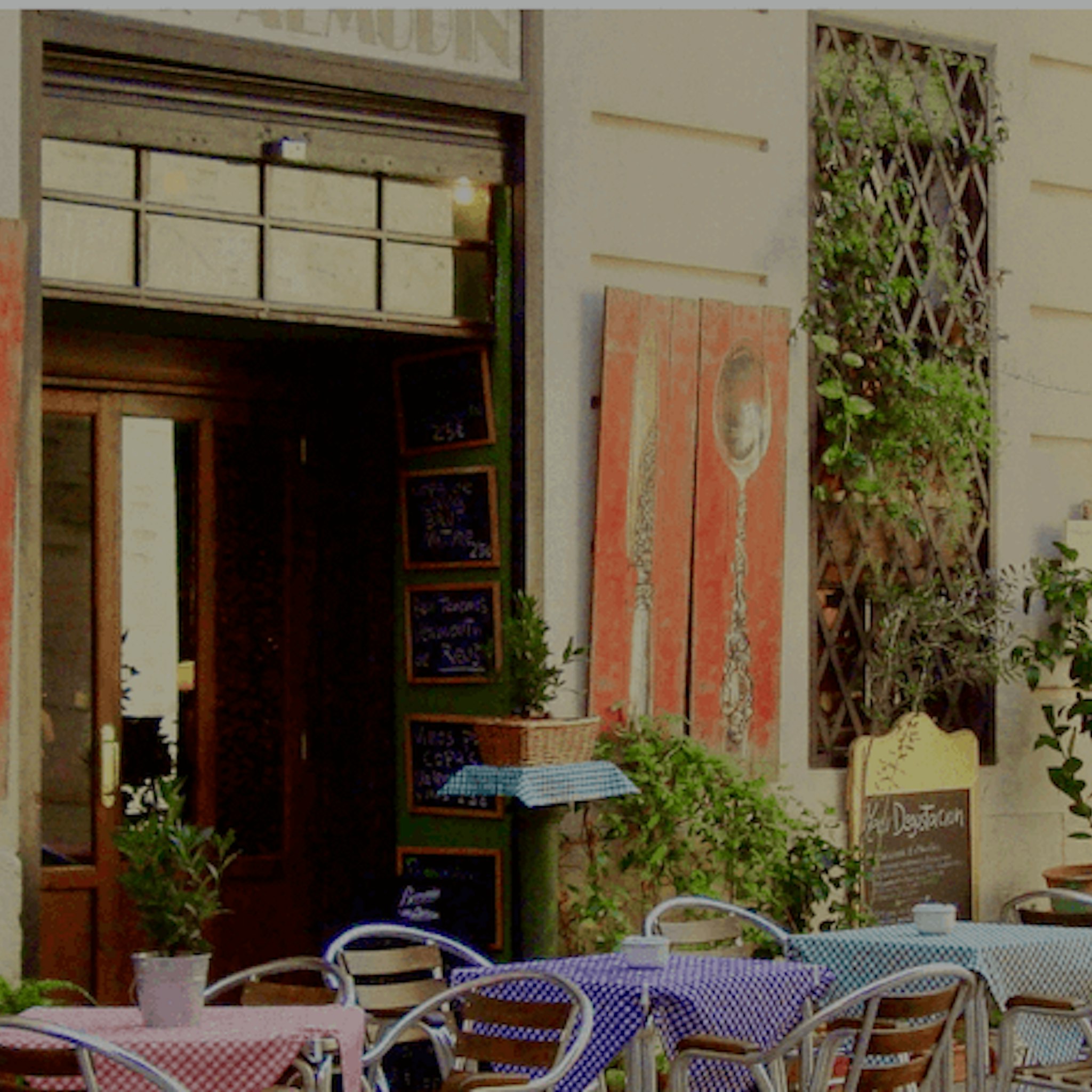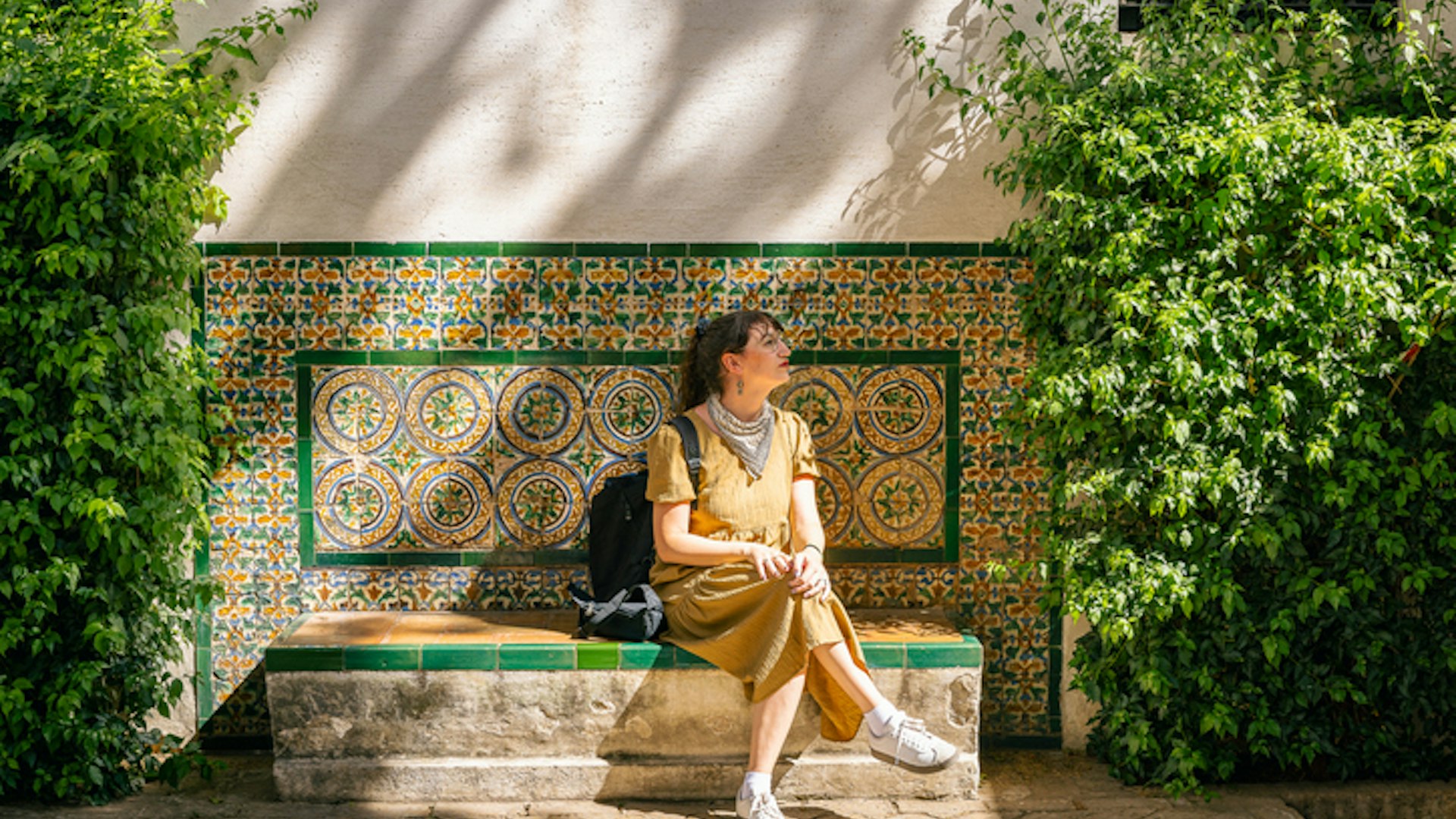
Best Things to do in Seville for Students
Explore the beautiful city of Seville and its incredible wonders & free things to do. Read our blog to find the best things to do in Seville for students!

Are you thinking of moving to a new city to study and wondering, what is it like to study abroad in Seville? Read our guide to studying in Seville!
21 April 2025 • 5 min read
Student Guide to Seville
Guide to Studying Abroad in Seville
When you’re moving to a new place for your studies, we understand that this is as exciting as it is overwhelming - it may be your first time living away from home, and on top of that you need to get used to an entirely new city.
If you’re thinking of studying in Seville, Spain, there is so much to discover in this wonderful city. Figuring out where to study, where to shop, where to live and how to navigate the local culture might seem like an intimidating task at first, but fear not - to give you a full introduction to studying in Seville, we’ve gathered our expertise and created a comprehensive guide.
This blog will discuss the following subjects:
Without further ado, let’s get into it!
What is it like to study abroad in Seville?
Seville is a fantastic destination to choose if you’re looking to study abroad. A hop, skip and a jump away from Spain’s southern coast, Seville is a refreshing, vibrant city with a large student population.
The academic opportunities here are incredible, so it’s a great place to meet like-minded people and work towards your dreams. With sunny weather all year round to boot, it’s no wonder that students here are so happy.
The city is both beautiful, with stunning Romanesque and Gothic architecture, and also a very affordable option if you have your heart set on Spain - compared to larger cities like Madrid and Valencia, the cost of living is reasonable.
With so much to see and do in Seville as well, it’s a fantastic place to study abroad.
Where to study in Seville
Haven’t decided where you’d like to study in Seville yet? As we’ve said, the academic opportunities here are fantastic. Seville offers three public universities, each with a dazzling reputation for excellence, and there are also several private universities and specialist schools to explore.
Here are five options you may want to consider:
Universidad Loyola - With three campuses across Seville, Cordova and Grenade - Loyola University, established in 1963, is a private Catholic university. With a wide variety of Bachelors’ courses in everything from Mechatronics and Robotics Engineering to Musical Creation and Production, this is a fantastic place to pursue your passion.
What’s the weather like in Seville?
Seville enjoys a Mediterranean climate, so the weather all year-round involves blue skies and plenty of sunshine. In fact, Seville is renowned for being one of the warmest cities in Europe, averaging around 27°C in the summer months. In January, the average is still relatively high at a sunny 11°C, so it’s still pleasant to explore and walk to and from lectures. Like much of Spain, there is also little rainfall compared to other parts of Europe.
What is the history of Seville?
With over 2,000 years of stories, trials and tribulations recorded - that even has a place in Roman mythology - it’s no easy task to summarise the history of Seville. If you want to work towards your degree in a city with deep historical roots, studying in Seville will suit you nicely.
Some myths state that Seville was founded by Hercules - the actual origins of Seville are less certain, but the consensus is that the city was originally founded by the Tartessos community and then populated by Phoenicians, Greeks, Carthaginians and then, later on, Romans.
Seville was bolstered greatly by the Spanish Golden Age (1492-1659). During this period, many of Seville’s most famous architectural landmarks were built (including the Catedral de Sevilla) and world-famous works of theatre like The Trickster of Seville were produced.
Seville, however, was also heavily affected by the Great Plague of 1649, which halved the population of 150,000. The city began to see prosperity and economic growth again in the 19th century, becoming more integral to Spanish politics. The city played a key part in The Peninsular War against Napoleon, and in many other conflicts.
In the 20th century, Seville established itself as one of Spain’s key cities, organising the Ibero-America Exhibition of 1929. During this time, Seville was also named the capital of the Autonomous Community of Andalusia. Now, in the 21st century, Seville is one of the most historically, culturally and socially significant cities in Spain.
These are some of the key events that have shaped the city as we know it today - with a wealth of landmarks and museums to explore, you can get to know the city’s history in greater detail when you’re studying in Seville.
What is the culture like in Seville?
What languages do they speak in Seville?
The official language of Seville is Spanish, specifically Castilian Spanish. This is also known as Peninsular Spanish and was originally spoken in northern and central Spain.
Unlike some of the larger cities in Spain such as Madrid and Barcelona where you find a lot of English-speaking locals, most of the locals in Seville will tend to speak only Spanish. You should aim, therefore, to speak in Spanish as much as possible.
This is ideal for immersing yourself in Sevilles’ culture and making the most of your time studying abroad, as you have a unique and rewarding opportunity to develop your Spanish skills.
What are the people like in Seville?
When you move to Seville to study, you’ll be welcomed by very warm, friendly locals. Although it’s one of the most culturally vibrant cities in Spain, Seville is renowned for its relaxed lifestyle and laid-back way of living, offering the best of both worlds for students.
What is the culture like in Seville?
From art and music to cuisine and architecture, the culture here is vibrant, rich and world-famous.
Expect to find a blend of classic Spanish traditions and sentimentalities, and influences from its own unique history. For example, the fantastic tapas culture that’s prevalent all across Spain thrives here - in the best bars across the city, you can expect to find affordable tapas dishes to pair with your drink. But Seville has local dishes, like Andalusian Gazpacho, that make it unique.
Some of the most popular cultural and historical festivals celebrated in Seville include:
What is daily living like when you study in Seville?
Of course, the most important thing to know is what daily living might look like if you decide to study abroad in Seville. What will you eat? Where will you go? How much will things cost? Here is a glimpse into what daily life is like.
Where are the best places to eat in Seville for students?
Seville is a brilliant city for tucking into delicious food and drinks at affordable prices, so you can taste quintessential Spanish cuisine without going over your budget.
As we’ve said already, you can get great value for money at tapas bars - at restaurants like Taberna Picalagart, high-quality dishes may cost as little as €3. We also recommend brunch places like Paradas 7, which is a good place to get some work done while enjoying beautiful coffees and balanced, budget-friendly meals.
If you’re looking to save money on produce, make sure to visit markets like Mercado de Triana, Mercado de Feria and Mercado del Arenal - these are the best spots for unforgettably delicious fruits, cheap vegetables and an array of other goods.
Find out more about these food spots with our Best Restaurants in Seville blog.
What are the best things to do in Seville for students?
There’s something for everyone to enjoy in Seville - it’s a cultural wonderland! Whether it’s exploring museums, admiring the beautiful architecture, wandering around local markets or spending the afternoon at one of the vibrant plazas, there are countless ways to let off some steam.
One absolutely must-do for when you arrive in Seville is the Royal Alcázar of Seville - it’s the perfect place to soak up a lot of local history, and there are also specific hours when you can get free entry.
The Metropol Parasol is also a great place to visit in Seville, an enormous wooden structure (in fact, the largest wooden structure in Europe) that offers discounted entry for students. From unforgettable panoramic walks to shops, museums and restaurants, this is the perfect place for a day out.
Find out more about the Best Things to Do in Seville For Students.
What is the cost of living like in Seville for students?
Seville is considered a very affordable Spanish city to study in, with average monthly living costs of around €800 (excluding rent and tuition fees). The transport links are fantastic, the produce cheap, and many free things to do available, the cost of living in Seville is very manageable.
Where is the best student accommodation in Seville?
So much of your student experience comes down to where you choose to live. This is where we come in - we’re Nido, and we provide premium student accommodation in major cities all across Europe. Nido El Porvenir, our Seville residence, is equipped to provide the best possible living experience, with features and facilities like:
Best of all, we value community above everything else, so we run year-round events to enrich your time in Seville and help you find your people. We understand how daunting it is to move to a new city for university, so we take measures to ensure you’re as comfortable as possible while staying with us - that’s the Nido Difference.
Book a tour today, or contact the team for more information.
Share this post
1/0